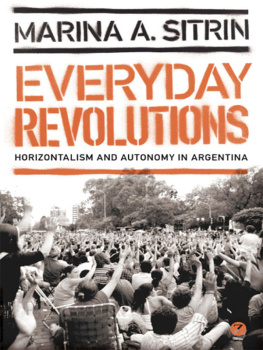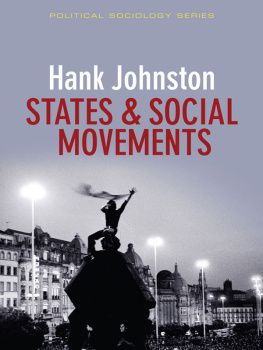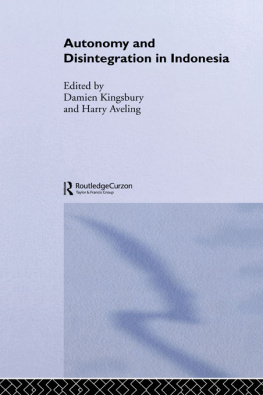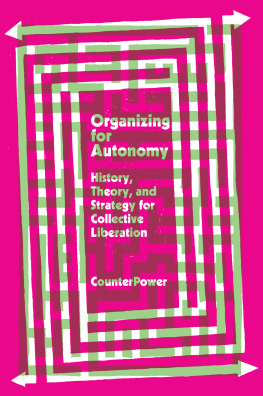
More Praise for Everyday Revolutions
Everyday Revolutions provides a richly detailed, insightful, and inspiring account of the full array of social movements that emerged out of the Argentine economic meltdown of late 2001 a key, though oft-neglected, antecedent to the Occupy movements and other waves of mobilization currently sweeping the globe.
Sonia E. Alvarez, author of Engendering Democracy in Brazil
Without arrogance, in a direct and simple way, Marina dares to challenge the prevailing categories and theories. She can do that well-rooted in the reality she observes and because she is involved in movements that are not only generating theory, but are themselves a theory, a new theory expressing a new reality. This is the book we need to begin to understand the new era of revolutionary change inaugurated by the Zapatistas in 1994 and now exploding everywhere.
Gustavo Esteva, author of The Commune of Oaxaca
Everyday Revolutions is a book that speaks about us: of those who seek to explain the world from the inside; of those who intend to challenge and change it; in our struggles to produce autonomous spaces and collective ability to recapture political space. Looking at the recent history of some of the most interesting recent social movements, Everyday Revolutions speaks of things that are happening here and now.
Ana Mndez de Ands, architect and urbanist, part of the research project Observatorio Metropolitano de Madrid and Traficantes de Sueos
Marina Sitrin delves deeply into the questions most books about movements avoid or simplify far too much, such as the question of production or the complex relation with the state. Everyday Revolutions could only have been written by a long-time activist and researcher such as Marina Sitrin, who knows about the challenges we face.
Dario Azzellini, author of Partizipation, Arbeiterkontrolle und die Commune
Essential reading for those trying to understand or enact the global movement for horizontal democracy.
Michael Schwartz, author of War Without End
Everyday Revolutions truly conveys not only what an affective politics is, but what this affective politics can do. Moving with the movements it both describes and analyses, this is not just a book, it is a companion on the journey through the worlds worth fighting for in the streets, squares, factories, fields, chat rooms and classrooms of our everyday lives.
Emma Dowling, Queen Mary, University of London
A living history of a living revolution Reading Everyday Revolutions we read of the emergence, the collective self-making, of new people. Beautiful!
David Harvie, author, with The Free Association, of Moments of Excess
Marina Sitrin has long been pioneering the kind of intellectual practice that is now becoming more and more crucial, with its cherished sensitivity toward the struggling/questioning/thinking in common from which all revolutionary thoughts arise. With both passionate and rigorous analyses of Argentinean processes, Everyday Revolutions embodies what theory can and should do today in the age of global insurgency.
Sabu Kohso, writer and translator
Sitrins smart and incisive analysis of horizontalism and autonomy in Argentina as an alternative form of not-power is a critical, timely, and lively contribution to understanding both why and how. Crackling with acuity, bits of history, and keen insights of a participant observer and social scientist, Sitrin joins those making an activist social science indispensable for those of us both committed to close, careful scholarship and passionate about social justice.
Eric Selbin, author of Revolution, Rebellion, and Resistance
In Everyday Revolutions radical transformation of life is as affective as running a factory, as concrete as raising children, and as utopian as struggling for dignity. Marina Sitrin has managed to bring to life various strands of contemporary social theory to understand the power of horizontal relations among commoners in struggle.
Massimo De Angelis, author of The Beginning of History
About the Author
Marina Sitrin holds a PhD in Global Sociology and a JD in International Womens Human Rights. Her work focuses on social movements and justice, specifically looking at new forms of social organization, such as autogestin, horizontalidad, prefigurative politics, and new affective social relationships. Her first book, Horizontalism: Voices of Popular Power in Argentina (AK Press 2006), is an oral history based on the then emergent autonomous movements in Argentina, published in Spanish (Chilavert 2005) and English. She has published in a range of journals and books, from the International Journal of Contemporary Sociology to Znet, LeftTurn, and Yes! Magazine. While much of her most recent published work has been on contemporary social movements in Argentina, she has worked throughout the Americas, the Caribbean, and Japan. Her current research includes global mass assembly movements, specifically in Greece, Spain, and Egypt.
EVERYDAY REVOLUTIONS
Horizontalism and Autonomy in Argentina
Marina A. Sitrin

Zed Books
London & New York
Everyday Revolutions: Horizontalism and Autonomy in Argentina was first published in 2012 by Zed Books Ltd, 7 Cynthia Street, London N1 9JF, UK and Room 400, 175 Fifth Avenue, New York, NY 10010, USA
www.zedbooks.co.uk
Copyright Marina A. Sitrin 2012
The right of Marina A. Sitrin to be identified as the author of this work has been asserted by her in accordance with the Copyright, Designs and Patents Act, 1988
Typeset in Sabon by Swales & Willis Ltd, Exeter, Devon
Index:
Cover photo: Interbarrial Ignacio Smith
Cover design: www.alice-marwick.co.uk
All rights reserved. No part of this publication may be reproduced, stored in a retrieval system or transmitted in any form or by any means, electronic, mechanical, photocopying or otherwise, without the prior permission of Zed Books Ltd.
A catalogue record for this book is available from the British Library Library of Congress Cataloging in Publication Data available
ISBN 978 1 78032 051 9
Dedicated to those creating everyday revolutions and especially the compaer@s of Argentina.
Contents
Acknowledgements
How to begin to acknowledge, thank, and give respect and love to everyone who was a part of this project? This section has taken me the longest to write, perhaps in part because I know in some ways that it is an impossible task to thank everyone.
Within this book are my attempts to reflect movements that encompass hundreds of thousands of people. How does one thank a movement? Then there are the many dozens of people who helped me think through the various ideas and meanings that I was encountering and then there are those who helped me as I struggled with my role as a movement participant, someone who is not an Argentine, and someone writing but not through an academic lens. Then there is all the personal support I received from friends and loved ones, those who have accompanied me along this journey. So, where to begin?
This is not a traditional acknowledgement where I will list the people who supported me or helped me in editing if that were the case I would be writing a never-ending list. This has been a many-year project of revolutionary transformation, one that I hope will be a tool that will help us, together, to reflect better on its meanings and lessons. This necessarily means thousands of people. No thought is original, and no movement is born from nothing. So, first and foremost, I acknowledge and give respect to all of those who have come before us, fighting and organizing to make possible where we are today. Of course, most importantly, I would like to thank the social movement actors in Argentina and around the world who are creating new worlds on a daily basis.
Next page












